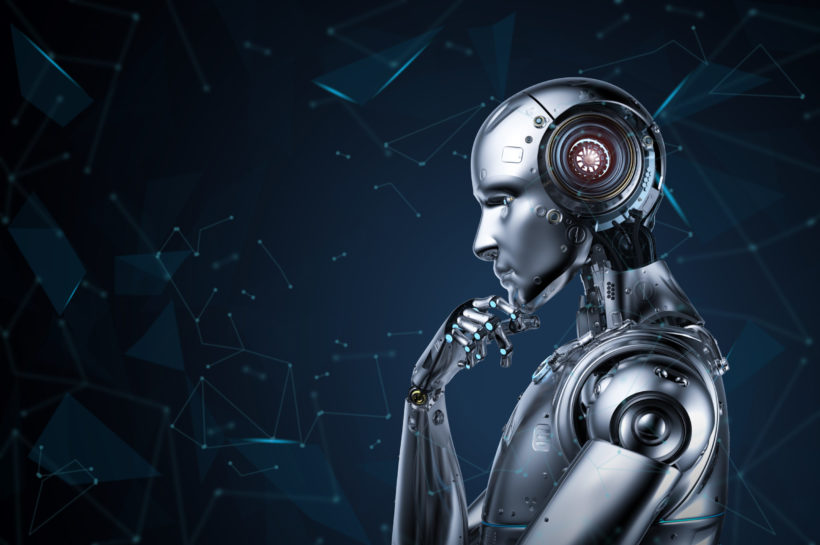
Artificial intelligence (AI) raises everything from fears of a takeover by machines to optimism that computers will solve some of humanity’s toughest challenges. Still, it is fast becoming an important consideration for many business processes, and human resources (HR) is no different. HR departments are starting to deploy AI solutions to save costs, influence more accurate data-based decision-making, and perhaps most importantly, improve the employee experience.
Currently, just 17% of organizations use AI-based solutions in their HR department, but this is expected to rise to 30% by 2022. Those that are willing to embrace a more personalized and consumer-centric approach to employee experience can increase the average employee’s performance by 17%
Now that we know that AI’s impact on many HR processes will continue to grow, what AI are we actually referring to, and how can it affect the employee experience?
Deployment of modern AI tools in many areas
Recruitment
AI has undoubtedly made the recruitment process faster and more efficient, benefiting both the recruiter and the candidate. Specifically, Natural Language Processing (NLP) allows a recruiter to use a data-driven approach to CV screening, identifying appropriate traits and eliminating human biases. Conversational chatbots and Application Tracking Systems also show potential employees that the organization is treating them fairly, making the process smoother and leaving a lasting impression after hiring.
Employee engagement
NLP can provide insights on employee sentiment by using text analytics from surveys and other communication. This helps identify sticking points for employees and allows employers to tailor their engagement strategy accordingly. Platforms such as Glint can analyze employee responses from feedback surveys, finding the relevant keywords and phrases to give an accurate testament to the team’s morale.
Learning Management Systems (LMS)
LMS, aided by AI, can help an employee learn up to five times more material while reducing the actual training time by 40-60%. The technology can predict the user’s next steps and behavioral patterns and even be leveraged to anticipate the user’s future learning path. Depending on how effective an employee engages with training, AI can help find gaps and opportunities that traditional LMSs would miss.
StartupNation exclusive discounts and savings on Dell products and accessories: Learn more here
Increased personalization through modernization
If HR continues to modernize by adopting AI tools, there will be room for further user personalization, which can only improve the employee experience. Many HR leaders are now starting to use voice-of-the-customer initiatives and nontraditional listening techniques to gather additional visibility into employee opinions, behaviors, and attitudes and create more holistic “voice of the employee” (VoE) insights.
These technologies, such as employee sentiment and social analytics tools, take a deeper dive to collect and analyze employee opinions, perceptions and feelings, and provide a way to harness multiple sources of information to understand the intricate dynamics of the employee experience.
Compensation and benefits is another area where the employee experience can be improved. Compright, for example, focuses on automating the compensation process. By putting all the data required to make good compensation decisions in one place, organizations can generate better decisions with more transparency and inspire better employee engagement. Establishing a rich data footprint will enable organizations to use AI to predict optimized compensation levels at an individual level. These HR domain-specific AI use cases are the next phase of innovation and will apply to performance management, employee development, and tailored retention strategies among others.
Simply put, employees want personalized development as part of their work experience. According to a Gallup survey, 87% of Millennials say that professional development is a very important factor for them. This aspect is more likely to make an employee feel engaged and motivated, which can increase a business’s profitability by 21%.
Today’s use of AI in HR largely leverages foundational AI tools like recommendation engines, natural language processing, and chatbot technology that have been matured in other domains. The next generation of AI applications will use more specific HR-based models to enable even more valuable insights. AI will never replace the “human” in HR, but forward-looking organizations should look to current and emerging AI applications to maintain an edge in the increasingly competitive market for talent.
The post How Artificial Intelligence Can Enhance the Employee Experience in HR appeared first on StartupNation.
via https://www.AiUpNow.com
October 8, 2021 at 12:04AM by Boyd Davis, Khareem Sudlow
